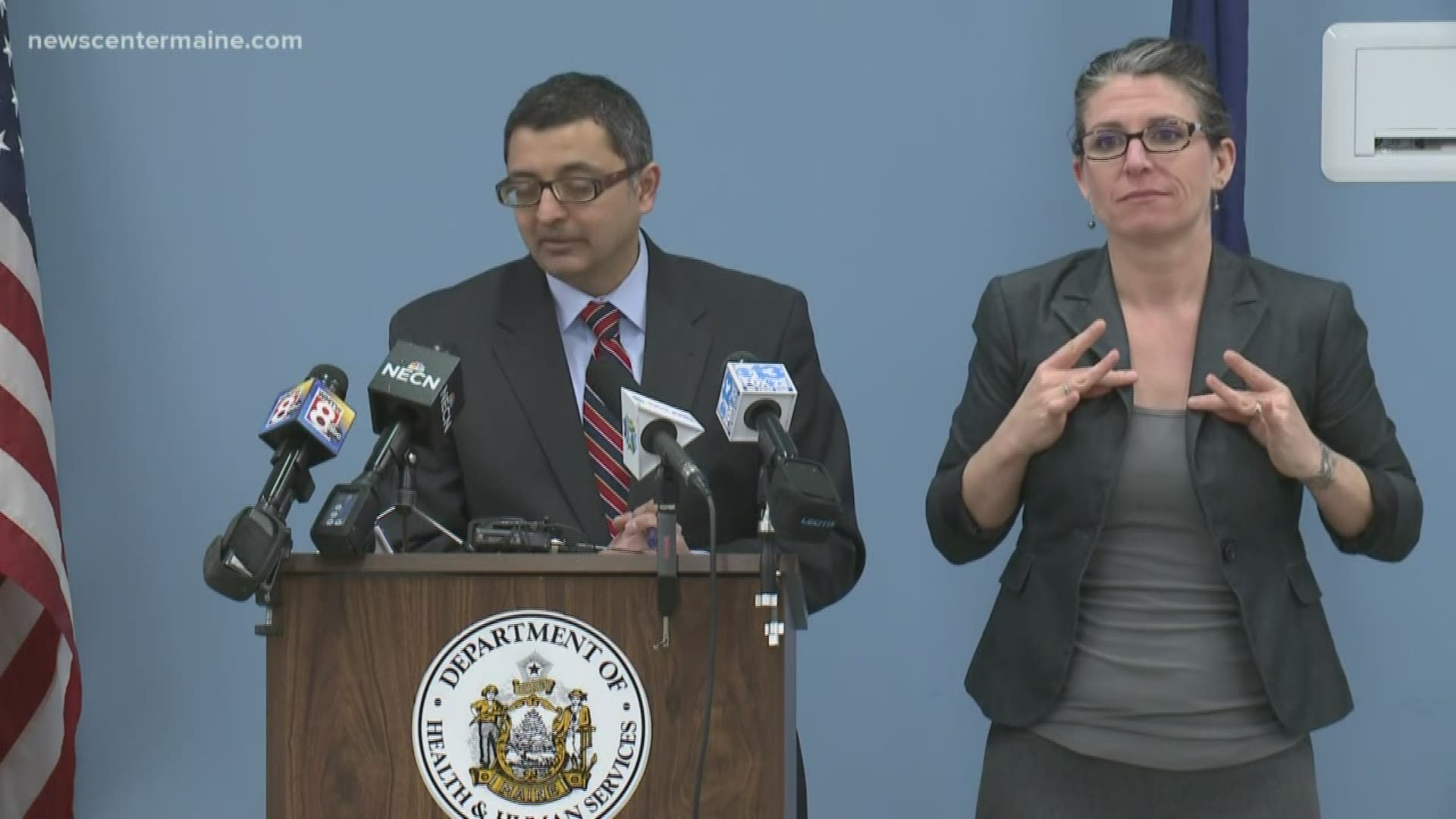AUGUSTA, Maine — The Maine Legislature has wrapped up a highly unusual day, brought about by the crisis over the coronavirus.
Tuesday night, Gov. Janet Mills' emergency legislation bills passed through the House and Senate and will be signed by Mills Wednesday at 11:30 a.m., directly following the Maine Centers for Disease Control (CDC) daily press briefing in Augusta.
Tuesday was the final session for Maine lawmakers and adjourned three weeks ahead of schedule so that members could follow guidelines of avoiding large public gatherings. They passed a compromise supplemental budget of $73 million by a nearly unanimous vote, and most other bills, including emergency measures aimed at fighting the coronavirus, also passed unanimously or close to it.
One emergency bill grants Governor Mills access to at least $11 million in State funding to respond to COVID-19.
Among other things, lawmakers approved more money for the Maine CDC and several proposals from the Governor to give towns and state government flexibility to deal with the COVID 19 crisis.
It includes an emergency unemployment bill that would temporarily extend eligibility to unemployment to workers that have been impacted by the coronavirus outbreak. House Speaker Sara Gideon and Senate President Troy Jackson co-sponsored the bill.
The measures passed tonight include:
- Establishing a consumer loan guarantee program through FAME, in partnership with financial institutions, to provide low- or no-interest loans for eligible people in Maine;
- Temporarily expanding eligibility for unemployment benefits for workers impacted by COVID-19;
- Increasing the Department of Education’s ability to waive certain school-day requirements and to continue school lunch programs for all eligible children;
- Authorizing Governor Mills to adjust state, county and municipal government deadlines and to permit all public entities to meet by remote participation;
- Expanding the ability of Maine Emergency Medical Services’ Board and staff to take actions more promptly;
- Authorizing Governor Mills to prohibit utilities from terminating residential electric and water service;
- Authorizing Governor Mills to determine and direct the manner of the June 2020 primary, if necessary;
- Delaying the effective date of the single-use plastic bag ban to January 15, 2021.
Governor Mills thanked the Legislature for its speedy work at the end of the session, saying Maine will make it through the current challenges of the coronavirus.
“These emergency measures will support the State’s response to the coronavirus and mitigate its spread in Maine,” Mills said in a statement. “Protecting the health and well-being of Maine people is a responsibility at the core of State government, and I am grateful to lawmakers for uniting in support of these measures so we can implement them swiftly.”
The emergency unemployment legislation:
“[T]emporarily revises eligibility requirements for the Unemployment Insurance (UI) program to include situations not typically covered, such as: 1) employer temporarily ceases operation due to COVID-19; 2) an individual is quarantined with the expectation of returning to work once the quarantine is over; or 3) an individual leaves employment due to risk of exposure or infection or to care for a family member. It also temporarily waives the one week waiting period for benefits so that workers may obtain benefits immediately and ensures that claims for UI will not affect an employer’s experience rating. These temporary measures will help relieve the burden of temporary layoffs, isolation, and medically-necessary quarantine on Maine workers and small businesses. Governor Mills has also urged Maine employers to be generous in their paid leave policies and to allow employees to work from home.
Jessica Picard, communications manager for the Maine Dept. of Labor, explained that since the bill provides additional flexibility and eliminates the one week waiting period, filing after the bill has passed would "just speed up the process."
As long as you file by midnight on Saturday, she says, your benefits for the entire week will not be negatively impacted, since they look at the week as a whole.
If you have already filed, it will still be counted, it will simply take the traditional one week waiting period.
These measures passed Tuesday night come in addition to a bipartisan agreement on a revised supplemental budget proposal that protects the health and well-being of Maine people as the State responds to COVID-19. The Legislature’s Appropriations and Financial Affairs Committee unanimously approved the proposal Monday and the Legislature passed it Tuesday, according to a press release.
Gideon released a statement Tuesday night following the passage of the bills, saying Maine "moved swiftly" across party lines to contain the spread, keep the public safe, and help workers and small businesses through their economic hardships.
Her full statement:
Here in Maine, we moved swiftly and coordinated across government, Democrats, Republicans, and Independents, to keep the public safe, provide additional resources for COVID-19 testing, help workers and small businesses stay afloat, and ensure our towns and school districts have the resources they need to continue to operate.
“It’s past time for the U.S. Senate to act and make COVID-19 testing free for all Americans, expand unemployment insurance and paid leave benefits, and provide emergency food assistance. Mainers and Americans have been waiting for federal leadership in this crisis, and aid legislation should have been approved days ago because every hour delayed in responding to this urgent public health crisis puts our communities at higher risk.
Many of the issues discussed earlier in the Legislative session were set aside to allow Tuesday's votes and adjournment. The Legislature may come back later in the year for a special session to complete that work.

